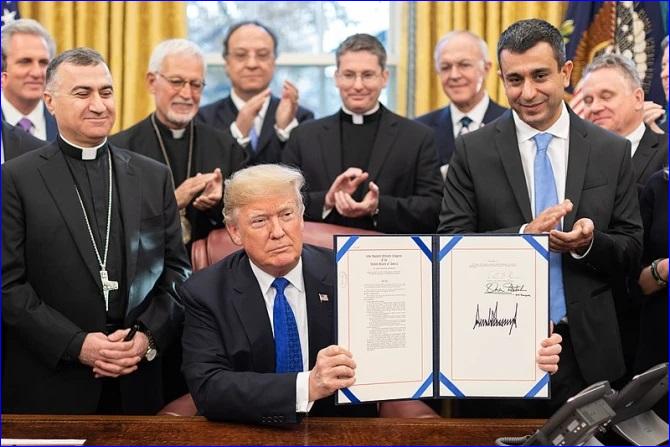


 Shealah Craighead)
Shealah Craighead)
Speaking with ACI Mena, CNA's Arabic-language news partner, Warda noted that "Christians in the region have borne the brunt of ongoing conflicts and wars in their homelands. Despite fears that rising tensions could bring more violence, they continue to hold on to a realistic yet profound hope of living in safety alongside their compatriots. They believe their shared future hinges on the promise of peace, prosperity, and nation-building."
Warda said people around the world now have their eyes fixed on Washington, D.C., watching closely to see if the president-elect will fulfill his campaign promises to end conflicts in the Middle East.
"Christians hope the American administration will maintain its commitment to supporting peace, guaranteeing stability to these ancient communities in their homelands, and cooperating with local governments to ensure their persistence and prosperity -- especially in areas where Christians are relatively present."
Warda recalled a previous meeting with Trump in December 2018 at the White House during the signing ceremony for H.R. 390, a bill that officially recognized the atrocities committed against Christians and Yazidis as genocide.
"This bill was the culmination of our campaign to bring the world's attention to the suffering of Christians and Yazidis, with the support from friends in both the Republican and Democratic parties," Warda explained. "It enabled government and human rights agencies to investigate ISIS' horrific crimes, prosecute its members, and directly support religious institutions in helping their communities heal from the aftermath of destruction."

or register to post a comment.